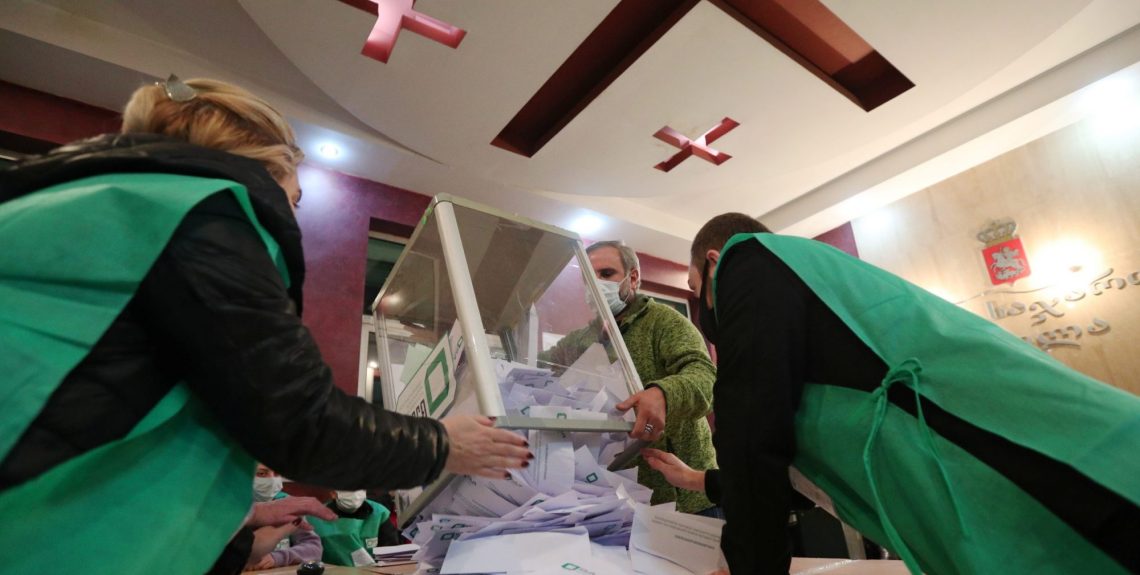Georgian elections had the primary purpose of determining the local or national redistribution of power or confirming the dominance of the “Georgian Dream”. This party has been in power continuously since 2012 and is a direct filiation, though presently not explicitly recognized, of Bidzina Ivanishvili, a Georgian tycoon who made his fortune in Russia, currently considered the richest man in Georgia.
All in all, the recent Georgian elections and above all the run offs held on 30th of October have had as a result a crushing victory for the ruling party, leaving on the side-line of the political spectrum the UNM, unofficially presided by the former Georgian President, Saakashvili, who is now in jail awaiting trial.
Georgia is in a very important geopolitical position, between the Black Sea and Georgia’s fundamental role as a commercial link with the Chinese-based Belt and Road Initiative and, in general, its possibility of connecting and strengthening the commercial potential represented by the Georgian Military Highway, which connects Tbilisi to the Russian border. These connections imply the access to the Iranian port of Bandar Abbas on the Persian Gulf and the Russian one of Makhachkala in Dagestan on the Caspian Sea.
In competing geopolitical visions, it may be a transit node for the “emerging Eurasian mass” (China, Russia and Iran) or an inroad and frontier for the Euro-Atlantic community in the Caucasus. The Nagorno-Karabakh conflict has brought in the fore also Turkey as actor, whose energy and geopolitical interests are well known. Georgia is crossed by the TANAP (Trans–Anatolian Natural Gas Pipeline Project) that supplies the European Union through the Caspian Sea and by the BTC, the famous Baku-Tbilisi-Ceyhan (Turkey) gas pipeline, diversified supply sources vis-à-vis Gazprom.
After the elections Russia will probably press Georgia to further move away from the path toward NATO and the European Union in exchange for an increased wine export and a relaxation of the still tense situation at the border with Abkhazia and South Ossetia. Perhaps, Russia may also grant a greater supply of gas at discounted prices; a supply previously provided by Socar, the Azerbaijani energy company that delivers gas to Georgia with a discount on the transit rights of the gas pipelines that cross Georgia from Azerbaijani territory.
The USA, instead wants Tbilisi away from the Russian orbit and as useful presence with possibly an anti-Iranian and anti-Russian functions, forestalling an increased Chinese activity in the Southern Caucasus. Together with the EU, Washington wants the reform of political-institutional structures with regard to long standing problems (corruption, authoritarianism, elections that are not totally “free and fair”, etc.).
The problem is that, since democratic reforms are stalling (overconcentration of governmental power versus a fractious and quarrelsome opposition), European infrastructural aid will be cut and the opening of the European Single Market to Georgian agricultural products will be reported. With a sagging economy, Georgia will continue its deep political-economic stagnation, remaining in a dangerous geopolitical limbo.

